In today’s world, one of the things that I am most conscious about is the need to connect with the land. In my case, that means forests. Urban living has ripped out the connection we all had with the earth and left us with a lifestyle which is deceptive and artificial. Millennials are addicted to tech gadgets, not to the sound of birdsong early in the morning. Many have never smelled the first rain on parched earth, a perfume which the Attars (perfume makers) of old captured in an Atar (perfume) called Atar-e-Gil or Mitti Atar. Many don’t know the feel of good loamy soil in their hands or the pleasure of planting a tree and then watching it take root, grow and flower, over the weeks. For many eggs come from the grocery store, not from chickens with a personality and clear likes and dislikes of places and people, which they don’t hesitate to make known. I can go on but this will suffice. I believe it is critically important for us to change that and get people to smell the earth, listen to the forest and feel a sense of companionship with those who inhabit the earth with us. As we are headed into global warming and environmental destruction, I can’t help but feel that this is because most of us don’t even know what we are losing or what an unspoiled environment looks and feels like. What we don’t understand, we fear and what we fear, we destroy.
All through my childhood and youth, 1960’s & 70’s, I spent as much time in the forests as I could which enabled me to indulge my deep and abiding interest in wildlife and ecology. I had three of the best teachers that one could hope for to learn jungle craft from. People who loved the forests, had a wealth of knowledge about them and had the patience and affection to convey it to a young boy. They were Capt. Nadir Tyabji, Nawab Nazir Yar Jung and my dear Uncle Rama (Venkat Rama Reddy). All were more than twenty years my senior but that has always been my situation, friends who are older and wiser from whom I learn all the time. I owe them a debt of gratitude and remember them with boundless respect and love. They invested countless hours in me for no material return and taught me lessons which fall into place to this day, fifty years later. It is a very rare privilege to have mentors like them and I am forever grateful.
From Nadir uncle I learnt to observe quietly without disturbing what I was looking at. I learnt from him the amazing variety of living beings that live in harmony with one another in a small little pond. I learnt a lot about birds, their nesting habits, their camouflage techniques and that the term, ‘free as a bird’ is a figment of the imagination. Birds are often so tied down to their environment, often a single species of tree, that if that tree dies, so does the bird. Out of this, I learnt to appreciate not one or two selected creatures but the whole spectrum of trees, insects, birds, reptiles and mammals that make up our environment. This was at a time when to get to the nearest pond with some undisturbed rocks and bush around it, took all of ten minutes walking.
I was able to appreciate the importance of not upsetting this balance and what happens when in our endless greed we thoughtlessly destroy our environment. I saw that pond, the rocks and scrub forest around it, listened to the cooing of doves in the trees, saw the jacana with her chicks skipping on the lily pads. I saw the mongoose come out of her den in the rocks and look at me, unafraid because she had seen me so often and knew that I posed no threat to her babies. I heard the cawing of crows and the endless chatter of sparrows. I saw the hoopoe swoop down from the sky onto a patch of grass and dig for worms with his sharp beak, raising his crown from time to time, to remind the world of who he is. Some years later when I returned to Hyderabad, I tried to visit that pond. I say tried to visit because to be able to visit, the object of your visit needs to be there. It wasn’t. The rocks had been blasted to make concrete. The pond had been filled in, the trees cut, the grass ground underfoot into dust. The mongoose, the jacana, the doves and hoopoe, even the crows and sparrows, all gone, never to return. What I saw was a tar road, a concrete high-rise building with climate control (meaning, no windows) and the whir of traffic. Was that the worst of it or was it that there was nobody to mourn their passing?
From Nawab Nazir Yar Jung (we called him Nawabsab) I learnt the basics of self defense, shooting, training dogs and horses and jungle craft. He taught me how to train dogs for tracking, retrieving and guarding. I was learning from a man who had an international standing in his art and I was very conscious of it. What I was also learning in the process of training dogs and horses, which I was not conscious of then, was about myself, my strengths, weaknesses, fears, hopes and emotions. Dogs react to facial expressions and unconscious movements and mannerisms and their performance depends on the clarity with which a command is given. To the man, it may appear that the command is the word alone. But to the dog it is a combination of sound, expression and the slightest movement all together as one. So, if you are not conscious of yourself, then your dog will always be confused because your command comes across to him differently each time. Today, when I teach presentation skills or facilitate meetings I recall these lessons in self-awareness and the power of synchronizing yourself in thought, word and action. Dogs taught me how to deal with people.
Uncle Rama taught me more than I can possibly list here. He taught me the meaning of responsibility and accountability. He taught me to take care of myself in a hostile environment. He taught me to be at peace with the forest, to connect with the stars and to respect the animals we occasionally shot for the table. Hunting was not a sport. It was something you did only for necessity and with a sense of deep thankfulness for the fact that the animal gave its life for you. Hunting was a contest between man with his weak senses and a good rifle and the animal with his speed of response, his highly tuned senses, his intuition and his enormous knowledge of his environment. It was not only an equal contest but was usually in favor of the animal. That is when you played fair. This means that you tracked the animal on foot, in daylight. Not when you used a high-powered searchlight to blind it in the night and then did target practice. That I was taught, is the most despicable, dishonorable and shameless thing that you could do. And so, I never did it.
All these were ostensibly lessons in anything but work. But in reality, they were lessons in character building, life skills, influencing, social dynamics, self-awareness and understanding which have stood me in very good stead all through my life and which are the backbone of my profession of leadership training.
I became very skilled in jungle craft and could stalk game in silence over long distances. I could camouflage myself and stay hidden and unobserved and walk a trail and tell the signs of creatures that had walked that path ahead of me. The more I knew about an animal the more likely I was to be able to track it down and shoot it. So, I studied, talked to people who were knowledgeable, and observed. My observation became very good and so did my ability to listen to and analyze sounds. In the Indian forests, home to large and potentially dangerous mammals, this knowledge can often mean the difference between life and death. As I learned more about forests, I enjoyed my time in the forests even more and looked forward to the holidays when I would get on a bus and travel to Nirmal, change buses for Khanapur and Pembi and then walk the last four kilometers to Sethpalli.
Uncle Rama was like a father to me and he would give me a royal welcome. He used to call me Nawab and treated me like a king. That I was a fifteen-year-old schoolboy meant nothing to him. To him I was his friend, who he treated as an equal. As soon as I arrived, covered in dust, I would go off to the well at the edge of the Tamarind trees, which shaded the house on the riverbank. There I would stand in my underwear and one of the farm workers (usually Shivaiyya, my Gond tracker friend) would draw water in a bucket from the well and pour it over my head. Lots of soap, more water flooded over my head, and I would be clean as two whistles. Dressed in a lungi and banyan, I would sit on the charpoy opposite Uncle Rama under one of the Tamarind trees and he would tell me all that had happened since my last visit. While this was going on, his cook would bring a huge bowl of fried Chital meat and I would eat and listen to him. I had a vast capacity for eating meat and tender Chital was my absolute favorite. Uncle Rama knew that I was Muslim and would not eat anything not slaughtered in the Islamic way. So, he used to take one of his Muslim workers, Noorullah, with him when he went hunting. Once the animal was down, Noorullah would go and slaughter it by cutting the throat and saying: Bismillahi Allahu Akbar. Such was the consideration we were taught to observe for one another.
I loved jungles. I loved hunting and I loved Uncle Rama above all else. So, every holiday I would go off to Sethpalli. Sometimes Uncle Rama would be in town (Hyderabad) at the time my holidays were about to begin. He would call and say, “Kya Nawab, chalna hai?” And off we went. He had a BSA motorcycle (350 cc). He would ride with a .12 bore shotgun slung across his chest and a bandolier of cartridges and I would ride behind him with a .22 bore rifle slung across my back.
How can I describe the excitement as I rode behind Uncle Rama with the wind in my face? Those were the days before helmets were invented; before there were any Naxalites in those forests and before it became illegal to hunt. So off we would go from Hyderabad to Sethpalli, via Nirmal and Khanapur. All names that conjure up wonderful memories of a childhood that today no child can even dream of. This is the price we have paid for what we like to call ‘development’.
As we went along, Uncle Rama would stop by a road side water tank. These tanks were an integral part of the irrigation network of Telangana, which does not see too much rain. Every village had its tank. When maintained, they harvested rain water, enhanced the water table in the village and provided water to irrigate the fields so that in most years people were able to harvest two crops. The tanks had fish and attracted water birds, both of which added to the villager’s diet. And they were very beautiful. Today they have been allowed to silt up. The dams are ruined. The entire irrigation system has been allowed to collapse with nothing else to replace it. Some of them have been encroached upon and people have built houses and shops on the tank bed, which is illegal of course. Alas, when the grease hits the palm in India, anything is possible. The result is drought, uncultivated lands and in years when the monsoon fails, starvation, and farmer suicides.
Uncle Rama would park his motorcycle by the roadside and we would get off, un-sling the guns and sneak up the embankment of the nearby water tank. There, sure enough, we would find, Brahminy, Pollard, Comb (Nakta) ducks, or Teals. All floating in the reeds and feeding in the shallows. Uncle Rama was a master tracker and I learnt from him. We would crawl along the bank, just below the top, careful not to show a silhouette and when we were in range, I would fire first and he would take the flying shots as the ducks rose in flight. Usually, we would get our dinner before we reached home. We would arrive at the farm with the motorcycle festooned with ducks on either side.
The villagers also hunt ducks. The difference is they do it without firearms. In this part of the world, they don’t even have any bows and arrows, catapults, or any other throwing weapons. What they do is to take a round pot with a mouth big enough for the head of the hunter to go through and make two holes in it to see through. They then seal the holes and the mouth of the pot and float it among the reeds where ducks take shelter in the night. After a couple of days, the ducks get used to seeing the pot in their midst. Then on a moonless night, the hunter creeps up quietly, enters the water and inserts his head into the pot, making sure that his body is completely submerged. He looks through the holes in the pot and breathes the air trapped in the pot. To the ducks, it is still the same pot floating among the reeds. Then the hunter very quietly and gently approaches a duck and grabs its legs under the water, yanking it down below the surface. Done expertly, the duck simply disappears without trace. The man transfers the duck to his other hand and then approaches the next duck to yank it to its watery end. The only thing limiting him is the number of duck legs he can hold in one hand. On a good day, getting five or six ducks is not difficult. Some hunters wear a belt to which they attach all underwater ducks which considerably increases their game bag. These ducks were a valuable addition of protein in their diet as well as a means of earning some money. Human ingenuity is truly the best resource we have.
Khanapur was the first watering hole. The first serious one that is. We would stop for tea at one of the many road-side Dhabas and Uncle Rama would have fun talking to the owner in fluent Telugu only to see the look of total surprise on his face. Uncle Rama, due to his English mother, was himself white with blond hair. So, people naturally took him to be British. And when he spoke colloquial Telugu and Urdu fluently, they were shocked.
In Khanapur we would stop at his house which he never actually finished building. He’d started it in the hope that his family would live there with him. But his wife, a wonderful, cultured lady did not fancy the village life, so he never finished the house. It was still livable though and we would stop there for lunch. After lunch he would pull out a big bottle with a viscous liquid that looked like old engine oil. What it contained was the most delicious honey that I have ever eaten. Fifty years later that statement still holds true. It was so black and viscous because it was so old and high in sugar content that it was practically solid. This honey with butter was the dessert…blissssssssssssssssssss, which was followed by two hours of sound sleep. The idea was to wait for the heat of the afternoon to lessen before travelling. In summer the temperatures there would be in the high forties (north of 115 F), even though we were in the middle of the forest. To travel in that heat (especially on a motorcycle) was a good way to get sunstroke. All life comes to a standstill at midday and then people start to move again once the sun is on its way to rising in America.
In the evening, after a cup of tea we would leave for Sethpalli, our final destination, sometimes in the Jeep that Uncle Rama used to cache in Khanapur, or on the motorbike. This drive was the most exciting part of the whole trip as the road went through thick forests. Much of it teak plantations. Some original forest. A lot of bamboo thickets and Ber bushes; favorite haunts of wildlife ranging from Jungle Fowl who eat the berries and seed, to Gaur which graze on tender bamboo shoots to tigers who like to lie up in the shade of the bamboo which is not deciduous and remains green in the summer. A good place to look for tigers is bamboo bordering any small creek or even a dry stream bed (Nalla). Tigers love to lie in the relatively cool sand or in the water all through the heat of the day, shaded from the sun and prying eyes by the thick bamboo fronds.
The semi-deciduous forests of the Satpura Range are relatively open without much undergrowth. One of the reasons for this is also the annual burning that happens even though it is illegal. Shepherds and others set fire to the undergrowth and this burns off all the dry leaves on the forest floor causing minor damage to the large trees. That leaves the place open for the growth of new grass and shrubs. Deer and Gaur love this new growth as also the ash from the burnt logs which they come to eat. The ash is also excellent manure for the new growth and it grows lush and thick. As we drove through the evening, rapidly turning to night, we would often see herds of Chital, Nilgai, the occasional Sambar (they usually start moving much later after moonset) and Gaur lying or feeding in the open forest glades. Most were so used to the sound of traffic that as long as the vehicle was moving, they would simply look up to see what it was and then continue on with whatever they were doing. But if the vehicle stopped, they would immediately be alarmed and start to move away.
Uncle Rama used these trips to teach me from his vast knowledge of jungle lore. I learnt to distinguish between a male and female animal. To recognize one that was pregnant or nursing. To recognize their different moods and what the calls meant. Some raised in alarm, the belling of a Sambar; the barking of the Cheetal, hooting of the Langur sentinel who sees the danger before anyone else and on whose vigilance, they all depend. I learnt the meaning of a deer staring in concentration at one thicket and then stamping his fore hoof a couple of times before barking alarm. By listening to the belling of a Sambar in the night, I learnt to tell which direction he was looking in and how far he was from me. In forests that had many tigers and leopards, this was a very useful skill indeed.
So many things to learn. I learnt. I learnt. I learnt. And I loved every minute of it.
The big challenge we have today is to teach our children these lessons and help them to connect to the earth, to its inhabitants and to each other. We are living beings, not binary code. The earth is not at our mercy but waits and watches to see what we do. Then it will do what it has done in the past, to protect what is beneficial and to heal itself by ridding itself of that which is harmful. Our call to define ourselves.
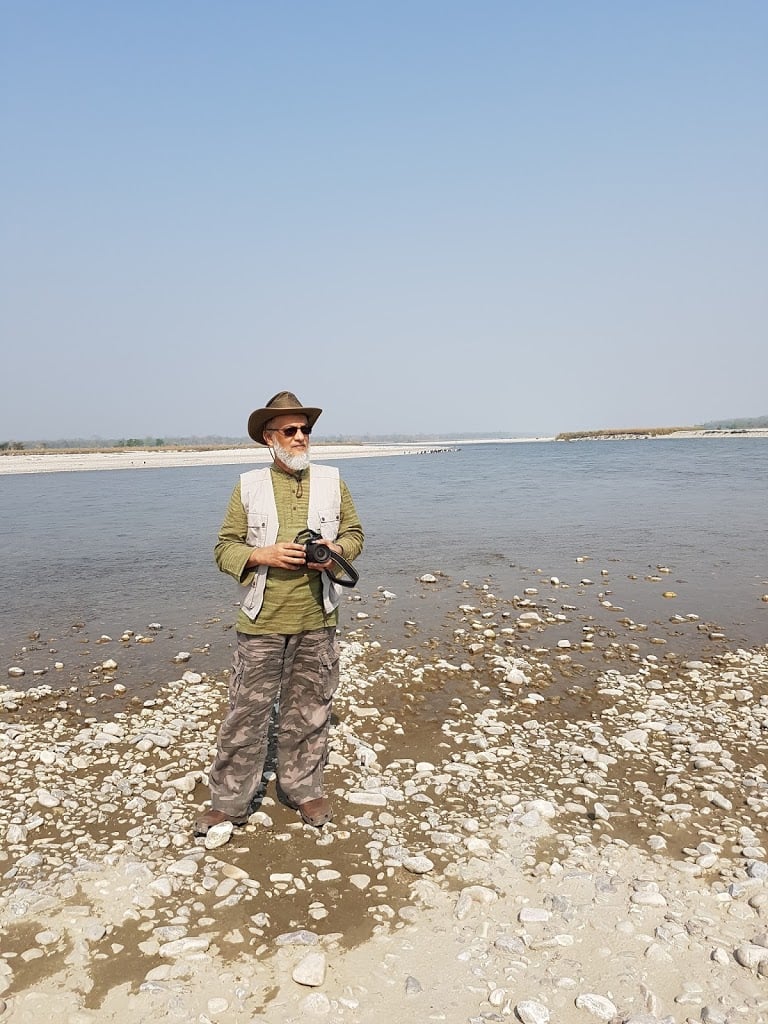
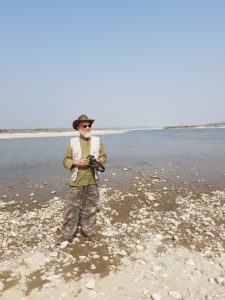
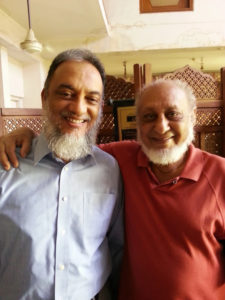
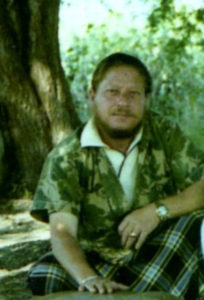
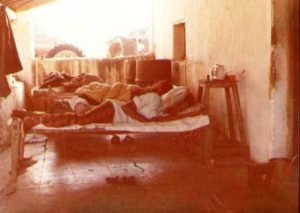
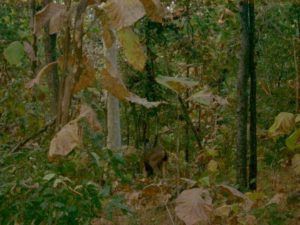
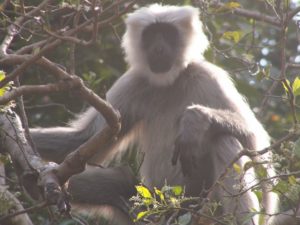
Thank you for a small glimpse into the wild. I wish I could experience some of it
Beautifully written
Beautifully depicted.
Wish we could have such experiences.
I would like to read this again and again , life lessons and of course very well written, READ AND LEARN
Beautiful. You were blessed to have such wonderful mentors. But, as the saying goes, you can take a horse to water, but….
It was your interest and dedication that enabled you to learn and absorb their knowledge and experiences.
A superb piece of writing.
Many thanks for your kind words Karan. Most appreciated.
You were fortunate to have such sincere and lovely mentors!